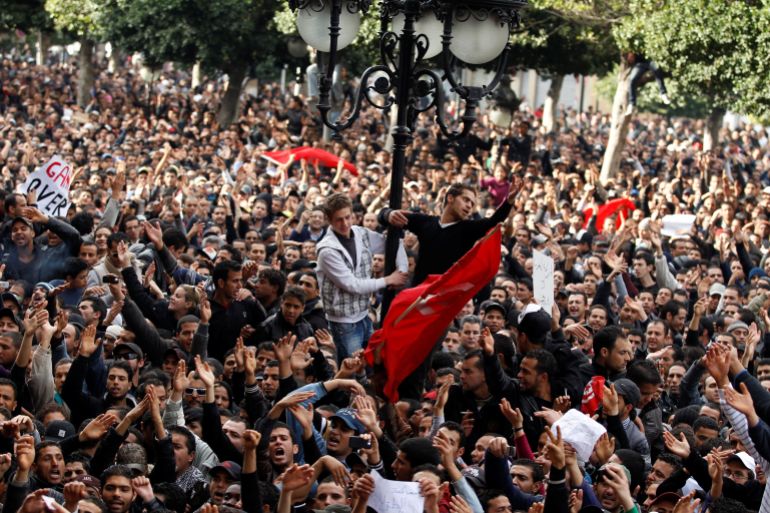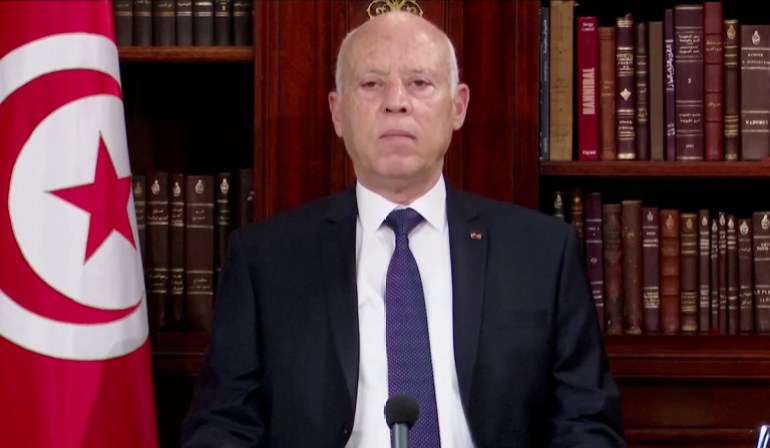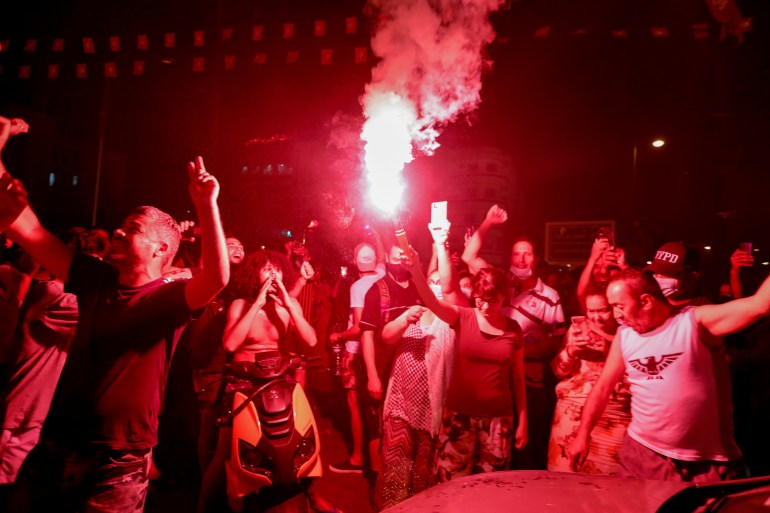Her first name, "Kimiya," is embroidered in green, white and red colors on her blackbelt, which is concealed by her protective vest. The green is for Islam, the white stands for peace and friendship, and the red for blood spilled in war.
Kimia Alizadeh is Iranian. But when she steps onto the competition mat in Makuhari Exhibition Hall, located about 50 kilometers (31 miles) outside Tokyo, she is a stateless person competing for the Olympic Refugee Team.

'Kimiya' embroidered in green, white and red on Kimia Alizadeh's black belt
She is always fully focused, both in the tunnel and when the fight begins. For her, the only thing that matters is winning. But just like at the 2016 Olympics in Rio de Janeiro, she loses her semifinal match.
Back then, she won her bronze medal match to become the first Iranian woman to win an Olympic medal. A seminal moment for her and for Iran. Five years later, she came up short in her bronze medal match on Sunday, missing out on a chance to return to the podium.
An ambitious competitor, Alizadeh will probably consider the result a defeat. But after overcoming so much adversity, she can still count Tokyo 2020 as a victory.
Why did Alizadeh leave Iran?
In January 2020, Alizadeh announced on Instagram that she no longer wanted to live in Iran and decided to move to Europe. In the post, she said she didn't want to be a part of "hypocrisy, lies, injustice and flattery" as "one of the millions of oppressed women in Iran."
She also claimed that Iranian athletes were being exploited behind the scenes. "I wore whatever they told me and repeated whatever they ordered. Every sentence they ordered I repeated. None of us matter for them, we are just tools" — Alizadeh still receives threats on social media for the post.
After a short stay in the Netherlands, she has been living with her husband in Nuremberg, southeast Germany. Earlier this year, she received refugee status in Germany and was named part of the IOC's Refugee Olympic Team for Tokyo.

Kimia Alizadeh fought for the Refugee Olympic Team in the Tokyo Olympics
Since her escape, the Iranian Taekwando Federation has refused to allow her to represent another nation. In addition to the challenges of learning a language and culture far removed from her family, Alizadeh had been struggling with injuries since fleeing Iran.
She had to undergo surgery multiple times and was unable to compete internationally from 2018 until training camps with the refugee team began a few weeks ago.
"But many people who criticize her don't see that. They only look at results," said Helena Stanek, a spokeswoman for the German Taekwando Union (DTU).
Why Alizadeh doesn't speak to media
"Kimia is very ambitions. Just being there is not enough for her. She definitely wants a medal," Stanek said.
Alizadeh gives no comments to the press. After her matches, the 22-year-old walks past the media without answering questions.
"She doesn't want to talk until she has won a medal," explains Stanek, who was the first German to win an Olympic medal in taekwondo at the 2012 London Olympics.

Kimia Alizadeh does not speak with media after matches
With a podium finish, Alizadeh wanted to prove to her many critics that her achievements have nothing to do with a passport. That she is as good of a fighter as a stateless person as she was as an Iranian. That she deserves respect — as an athlete, as a woman, as a human being.
"She received a lot of negative reactions on social media after she escaped," Stanek said. "That she would have been much, much better if she had continued to fight for Iran."
That reaction really hurt Alizadeh, the DTU spokeswoman continued, and has held back since because of it.
Alizadeh's Tokyo Olympics
In her first fight in Tokyo on Sunday, she won her opening match against Iranian Nahid Kiani, her former teammate.
Kiani's coach was also Kimia's two years ago, Stanek says. Before the match, Alizadeh had said to Stanek: "Helena, those are friends from before."
Alizadeh defeated Kiani, Britain's Jade Jones and China's Zhou Lijun to reach the last four in the under-57kg category. Despite losing to Russian fighter Tatiana Minina, the 22-year-old still had a shot at the podium.

Kimia Alizadeh runs with an Iranian flag after losing her bronze-medal bout
But unlike Rio 2016, her bid for bronze came up short, losing 8-6 to Turkey's Hatice Kubra Ilgun. Despite not replicating her bronze-medal performance from five years ago, she ran around the arena cheering, donning a headscarf and waving the Iranian flag.
The defeat was still visible, perhaps hurting a bit more since she couldn't silence her critics with another Olympic medal — her shortfall may even embolden them more.
Once again, she didn't issue comments to the media. She didn't win a medal, after all. Yet she still has a worthy story to tell: about courage, the will to fight, fairness — all things her critics would know nothing about.
This article was adapted from German






















 Protesters demonstrate against Tunisian President Zine El Abidine Ben Ali in Tunis, January 14, 2011 [Zohra Bensemra/ Reuters]
Protesters demonstrate against Tunisian President Zine El Abidine Ben Ali in Tunis, January 14, 2011 [Zohra Bensemra/ Reuters]








 People celebrate in Tunis following Saied's announcement on Sunday. (Fethi Belaid/AFP/Getty Images)
People celebrate in Tunis following Saied's announcement on Sunday. (Fethi Belaid/AFP/Getty Images)